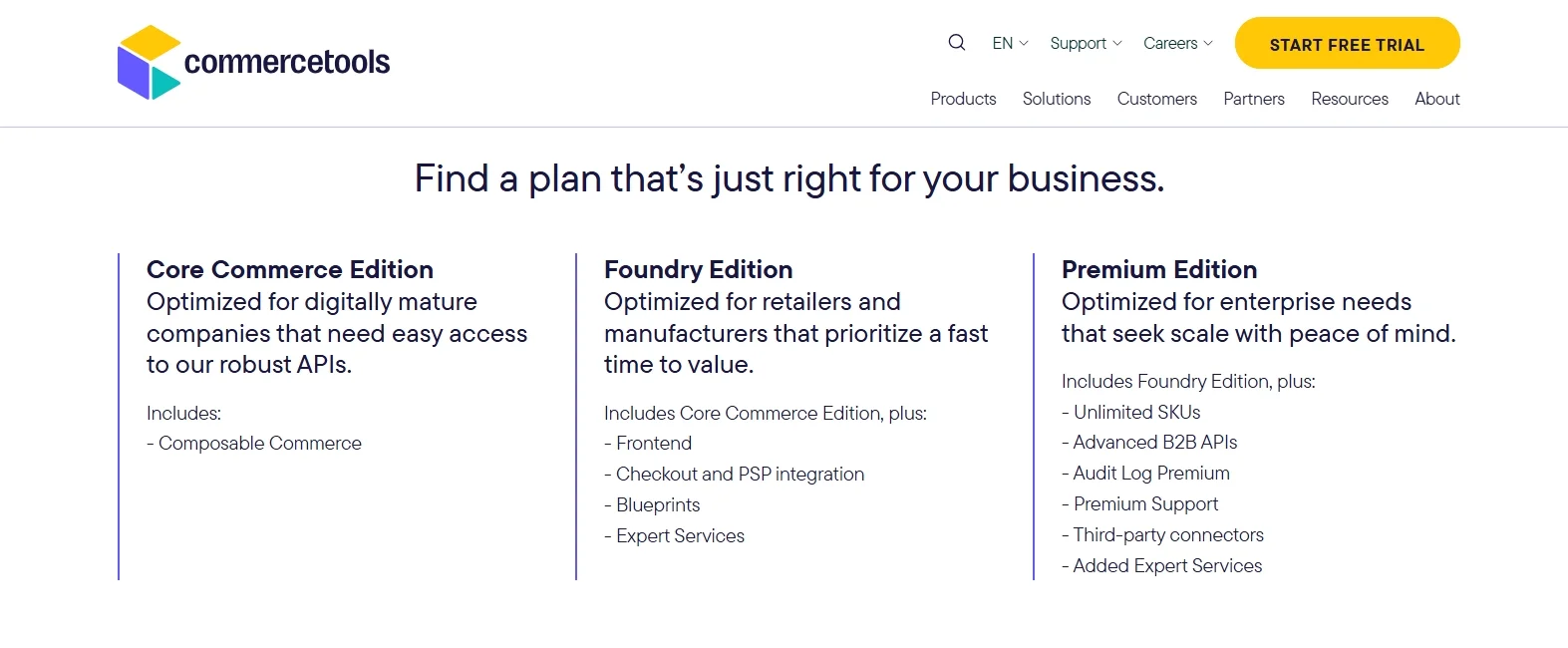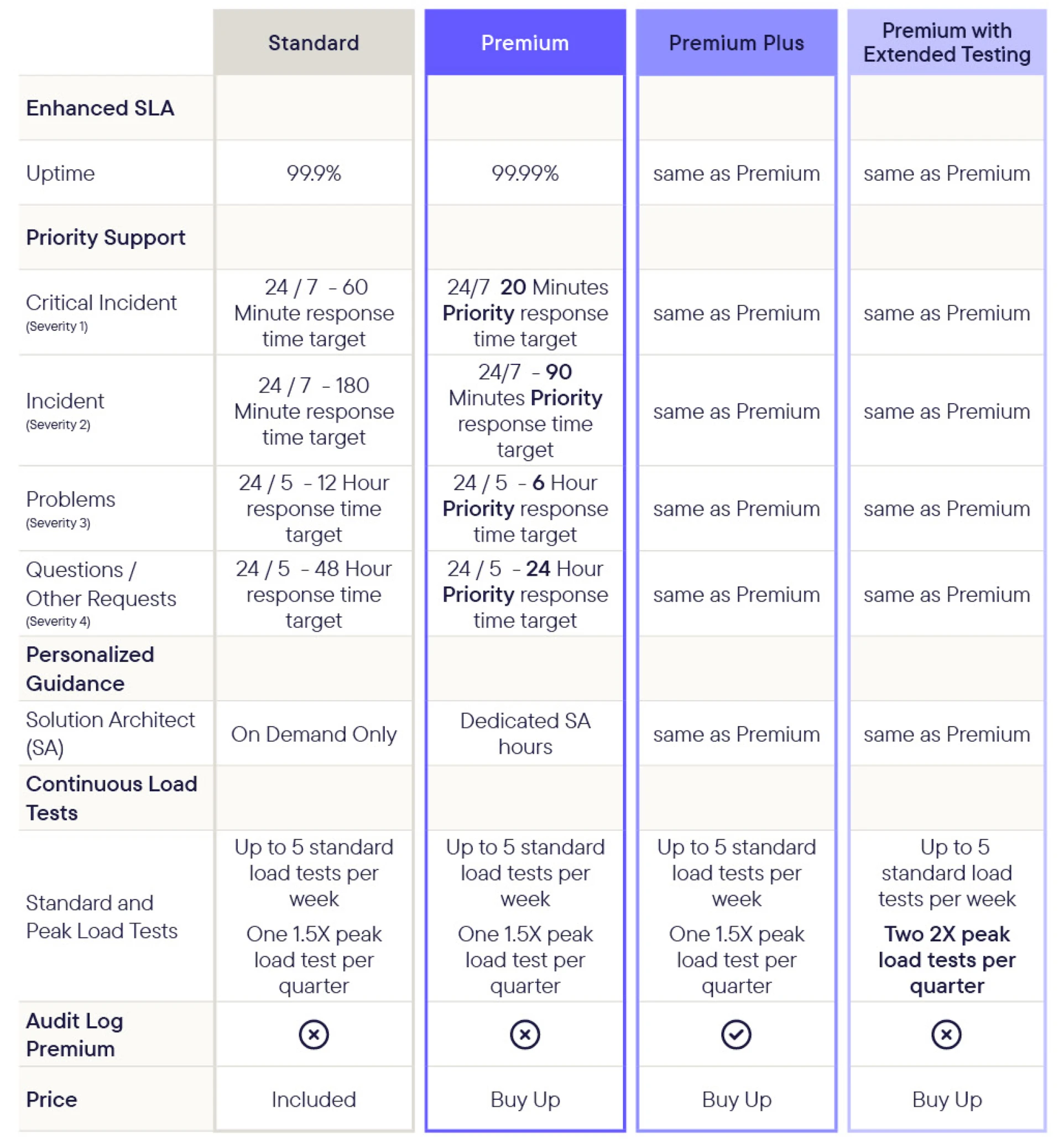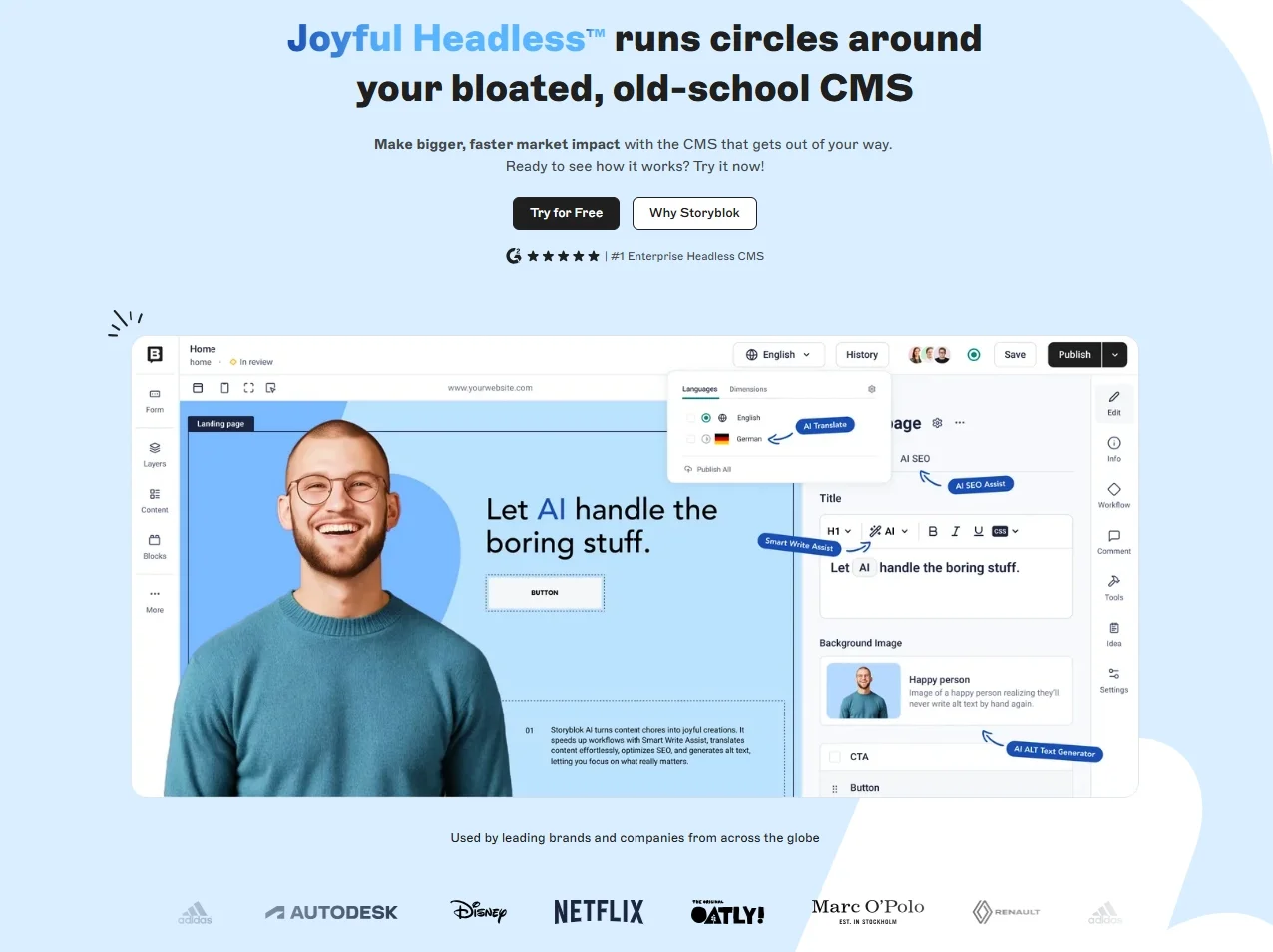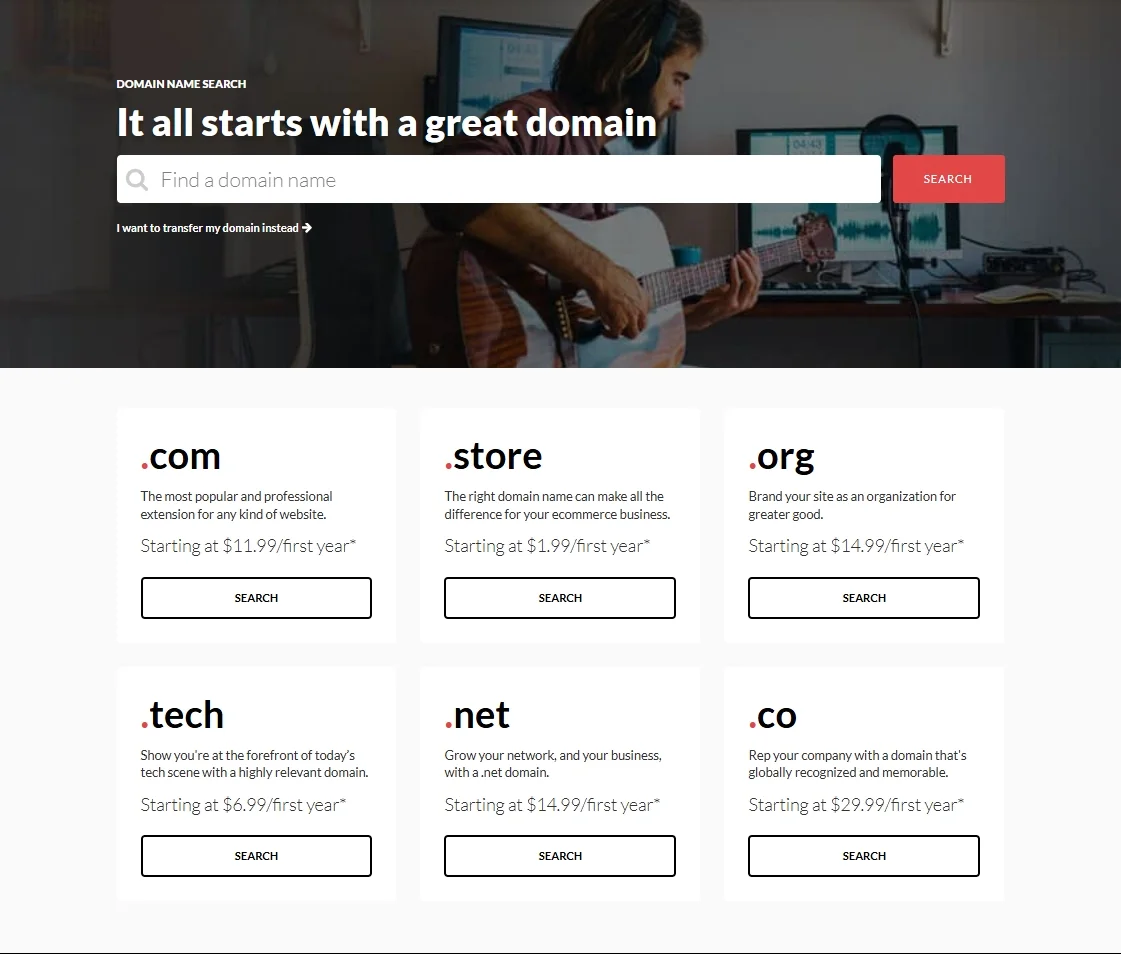Understanding how much the platform costs is essential before making any long-term decisions. That's why many businesses want to analyze commercetools pricing when considering this platform for their online presence.
In this article, we will help you examine the cost of commercetools by breaking it down into:
We believe that with this guide, you’ll be better prepared to evaluate if commercetools fits your budget and business needs.
commercetools Pricing Breakdown
Being one of the best headless eCommerce platforms in the market, commercetools pricing follows a tiered, custom pricing model. Unlike traditional platforms with fixed monthly fees, commercetools tailors its pricing based on the number of orders processed. The platform is available in several editions, Core, Foundry, and Premium, each offering different levels of flexibility, features, and support.
While commercetools does not publish exact prices, industry estimates and partner insights provide a general picture of the costs involved at each level. Below, we break down what you can expect from each edition.

Core Commerce Edition
Estimated commercetools pricing for this edition: From $50,000 per year
The Core Commerce Edition is commercetools’ most basic commercial offering, designed to help businesses get started with headless commerce architecture. It provides access to commercetools’ essential API modules, allowing companies to build custom commerce experiences without paying for unnecessary enterprise-level features.
This edition includes:
- Unlimited catalogs
- Unlimited channels and storefronts
- Powerful API integrations
From our perspective, this edition is ideal for mid-sized retailers, DTC brands, or companies launching a single storefront with a moderate product catalog. It's a great starting point for companies adopting composable commerce for the first time and looking for a foundation they can build upon over time.
Foundry Edition
Estimated commercetools pricing for this edition: From $100,000 per year
The Foundry Edition is a more advanced commercetools package designed for businesses that are scaling rapidly or undergoing digital transformation. It builds upon the capabilities of the Core edition by offering more development environments, enhanced SLAs, and broader integration support.
This edition includes everything that the Core Commerce offers, plus:
- Frontend
- Checkout and PSP integration
- Blueprints
- Expert Services
In short, we think the Foundry edition is intended for companies with more complex needs, such as managing multiple storefronts, integrating with ERP or PIM systems, or expanding into new geographic markets. It is particularly suited to enterprises that require deeper API usage, multi-language or multi-currency support, and dedicated technical onboarding.
Premium Edition
Estimated commercetools pricing for this edition: From $150,000 per year
The Premium Edition is commercetools' highest-tier solution, built specifically for large-scale enterprises with complex commerce operations and global reach. It includes everything found in the Core and Foundry editions, but adds powerful enterprise features like:
- Unlimited SKUs
- Advanced B2B APIs
- Audit Log Premium
- Premium Support
- Third-party connectors
- Added Expert Services
From our experience, the Premium Edition is the preferred choice for multinational retailers, global brands, and high-volume marketplaces that cannot afford service interruptions or performance lags. For companies seeking the highest levels of scalability, support, and infrastructure reliability, the Premium Edition delivers an enterprise-grade commerce foundation.
Additional commercetools Fees You Need to Consider
While commercetools pricing is flexible with Core, Foundry, and Premium editions, the license fee is just one part of the total investment. Because commercetools is a headless, API-based platform, it does not include many of the components required to launch and operate a complete eCommerce experience out of the box. As a result, businesses need to plan for several additional costs that can significantly impact their total cost of ownership (TCO).
These extra fees often include premium support services, front-end website development, domain registration, and cloud hosting. Some of these are optional but commonly needed, especially for businesses that want fast time-to-market, reliable performance, and a custom-built storefront. Below, we explore the most important additional expenses to consider when budgeting for a commercetools implementation.
Premium Support Service
commercetools offers multiple tiers of support beyond the standard plan, each designed to meet different business needs in terms of uptime, response time, and technical assistance. While the Standard support plan is included with all subscriptions and covers basic response times, businesses that rely on commercetools for mission-critical operations often upgrade to Premium Support service for extended support.

With the Premium Support plans, customers benefit from an enhanced SLA with 99.99% uptime and significantly faster response times. For example, critical incidents (Severity 1) receive a 20-minute priority response, while other severities are also handled more quickly than under the standard plan. In contrast, the Standard plan has a 60-minute response time for Severity 1 incidents and up to 48 hours for low-priority issues.
Additionally, by upgrading to the Premium version, you'll also get a dedicated Solution Architect (SA) for more proactive technical guidance and architectural support. Additionally, both Standard and Premium plans offer up to 5 standard load tests per week and one 1.5x peak load test per quarter, although Premium still requires an additional purchase for audit log access.
Please note that each premium support upgrade is priced as a “buy-up”, meaning it adds to your base commercetools pricing. Businesses should evaluate these plans based on the criticality of uptime, the need for proactive technical help, and the importance of performance testing during peak shopping seasons.
Website development
Unlike fully-hosted solutions like Shopify or BigCommerce, commercetools does not include a pre-built front-end or visual website builder. Therefore, when evaluating commercetools pricing, it's important to calculate the additional costs for website development.
The cost of website development can vary widely depending on the complexity of the project. A simple storefront with basic design and functionality might cost between $10,000 and $50,000, while a custom enterprise-grade front-end with advanced features, localization, and multiple storefronts can easily exceed $100,000. These costs typically include front-end design, development, QA testing, performance optimization, and CMS integration.

Most commercetools builds use modern JavaScript frameworks such as React, Next.js, or Vue.js, along with a headless CMS like Contentful, Sanity, or Storyblok. Businesses may also need to integrate their front-end with back-end services like ERPs, payment gateways, and customer data platforms.
In addition to the initial build, ongoing maintenance and feature development typically add 15–25% of the original development cost annually. For businesses without an internal development team, hiring an agency or a commercetools solution partner is essential, and adds to the overall investment.
Website domain & hosting
Finally, let's discuss website domain and hosting, two essential elements when evaluating your total commercetools pricing.
Domain registration is typically straightforward and low-cost, ranging from $10 to $50 per year, depending on the domain provider and extension (e.g., .com, .store, .co.uk). However, businesses operating in multiple regions or languages may require several domains, which can slightly increase costs.

Hosting, on the other hand, varies more widely depending on scale, performance needs, and the hosting provider. For small to mid-sized storefronts using JAMstack architectures (e.g., Next.js or Vue.js front-ends), platforms like Vercel, Netlify, or Cloudflare Pages are popular and may cost between $500 and $3,000 per year. Larger enterprises with higher traffic, more environments, and custom performance requirements often use AWS, Google Cloud, or Azure, with annual hosting costs ranging from $5,000 to $50,000+.
Other hosting-related expenses can include:
- Content Delivery Network (CDN) services for global performance
- SSL certificates for secure browsing
- Performance monitoring and security tools
Why Choose commercetools for Your Business
Now that you have a clear picture of what stacks up the total commercetools pricing, let's see if this platform is worth your investment. Following a headless, API-first architecture that gives brands full control over their tech stack, commercetools is an ideal option for companies that want to move fast, scale globally, and deliver personalized customer journeys across every channel.
One of the biggest reasons to choose commercetools is its composable commerce model. This allows you to integrate best-of-breed services, like CMS, search, payments, and analytics, into a tailored solution that fits your exact needs. Instead of being locked into a rigid system, your team can innovate faster, experiment more easily, and update services independently without disrupting the entire platform.
Additionally, commercetools is built to handle enterprise-level scale, supporting multi-brand, multi-region, and omnichannel operations. Its cloud-native infrastructure ensures high availability and performance, while features like internationalization, multi-language support, and robust APIs help businesses expand quickly and efficiently.
Security, flexibility, and speed are also key benefits. commercetools complies with enterprise-grade standards such as GDPR and ISO, and its MACH (Microservices, API-first, Cloud-native, Headless) foundation ensures long-term agility. Whether you're launching a new DTC brand or modernizing a legacy B2B operation, commercetools provides the tools and freedom to build commerce your way.
In short, businesses that value technical flexibility, long-term scalability, and modern customer experience often find commercetools to be a smart and strategic investment, even if the upfront implementation and learning curve are steeper than simpler platforms.
commercetools Pricing – FAQs
Is commercetools free?
No, commercetools is not free. It is a paid, enterprise-level commerce platform designed for businesses that require high flexibility, scalability, and control. Pricing is not publicly listed because it varies based on each business’s needs and order volume. While commercetools may offer trial environments for testing, production use always requires a paid license, starting from around $50,000 per year for the Core Commerce Edition.
What is the difference between commercetools and BigCommerce?
commercetools and BigCommerce serve different types of businesses and offer very different architectural models. BigCommerce is a more traditional SaaS platform with built-in themes, a visual editor, and lower upfront complexity. It's ideal for small to mid-sized businesses looking for fast setup and ease of use.
In contrast, commercetools is a headless, API-first platform built for businesses that want full control over their tech stack and front-end. It requires custom development and is geared toward enterprises with complex commerce needs. As a result, commercetools generally has a higher implementation cost but offers far more flexibility and scalability in the long run.
What is the difference between Shopify Plus and commercetools?
Shopify Plus is a cloud-based SaaS platform designed for high-growth merchants who want a managed, out-of-the-box experience. It includes templates, an admin dashboard, and bundled hosting—all managed by Shopify. Pricing is typically more predictable, starting around $2,000 per month.
commercetools, on the other hand, is composable and modular, giving you the freedom to choose and integrate each service you need. It requires more upfront investment in development, infrastructure, and third-party services. However, it provides unmatched flexibility, which is essential for large or multi-brand enterprises with unique business logic or global operations. While Shopify Plus is simpler and quicker to launch, commercetools is built for businesses that want complete control and long-term scalability.
Final Words
In conclusion, while commercetools pricing is not openly published, it’s clear that this platform is designed for companies ready to invest in a composable commerce architecture, where each piece of the tech stack is tailored to their unique needs.
From the Core Commerce Edition to the Premium Enterprise tier, the costs scale with the complexity of your business and your demand for performance, customization, and global reach. However, it’s important to remember that the license fee is only part of the total investment. Website development, premium support, and hosting all contribute to the final cost of ownership.
If you like this article, please don't forget to check out other blogs on our LitExtension website for more expert tips and insights.

